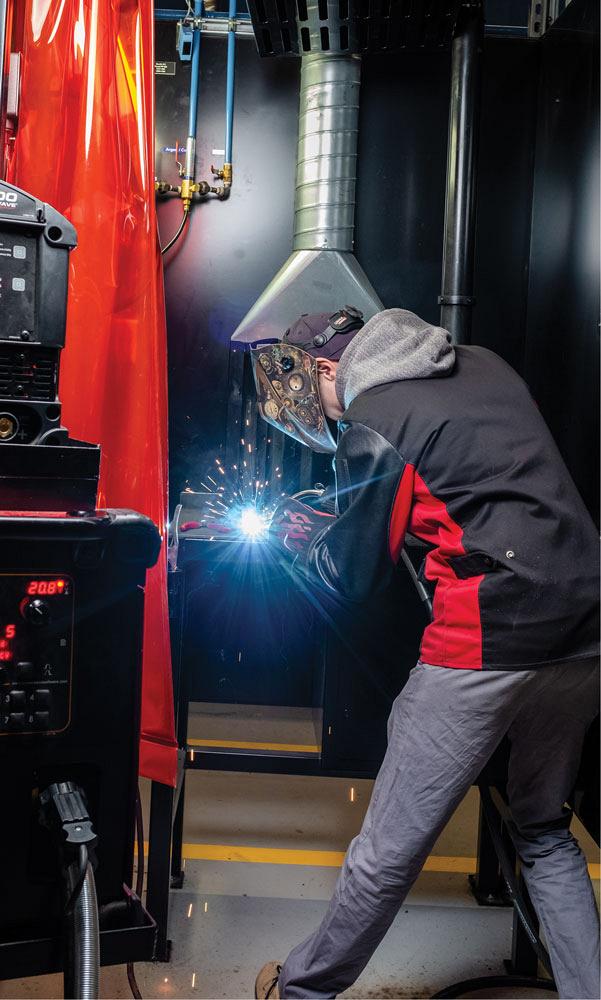Welding Degree Worth It? (In-Depth Guide)
Absolutely. A career in welding is worth it in terms of job prospects and salary potential.
Many industries require skilled welders and the demand continues to grow.
Welding is a skilled trade that involves joining materials using high heat and pressure.
Skilled welders are in high demand in various industries, including construction, manufacturing, oil and gas, and transportation.
Welding is also a lucrative career, with the median annual salary for welders in the United States being around $42,000.
The job outlook for welders is also positive, with the Bureau of Labor Statistics predicting a 3% job growth rate between 2019 and 2029.
A welding degree or certification can open up many opportunities for those interested in pursuing this career path.

Credit: www.canadianmetalworking.com
The Benefits Of A Welding Degree
A welding degree is a specialized course of study that provides an in-depth understanding of the welding trade.
Unlike a certification that focuses on specific skills, a degree program delves into many areas such as metalworking, blueprint reading, and welding safety.
With a welding degree, graduates have access to a variety of career opportunities in industries such as construction, automotive, and manufacturing.
Welding degree holders can potentially earn a good living, with average salaries ranging from $40,000 to $80,000 per year.
Pursuing a welding degree provides advantages over other trades such as plumbing or carpentry because it is highly specialized and in-demand.
Graduating with a welding degree can give individuals a competitive edge when seeking employment in the welding industry.
Weighing The Costs Of A Welding Degree
Earning a welding degree is a promising path for those interested in industrial and manufacturing work.
However, it’s important to consider the costs of such a program, especially when compared to other types of degree programs.
Fortunately, there are scholarships, grants, and financial aid opportunities available to aspiring welders.
When evaluating the return on investment of a welding degree, it’s essential to examine the potential job growth and salary potential in the field.
With proper research and consideration, pursuing a welding degree can be a worthwhile investment for those seeking a career in skilled labor.
However, a degree is not always necessary to land job opportunities in the welding industry.
Many employers value experience and certifications over formal education.
It’s important to weigh the options and determine what path is best for your career goals in welding.
The Skills And Knowledge Acquired From A Welding Degree
A welding degree goes beyond welding techniques to equip students with real-world skills.
Students learn and practice varied welding techniques such as gas metal arc welding, shielded metal arc welding, and gas tungsten arc welding.
Welding degree programs challenge students to solve technical welding problems while considering safety protocols and government regulations.
Graduates of Welding degree programs are adept in welding processes, metallurgy, geometry, and blueprint reading.
They are also proficient in mathematical calculations, technical writing, and project management.
Welding degree graduates stand out in the job market because employers seek professionals with specialized technical skills.
Welding degree holders are eligible for welding inspector, welding educator, fabrication supervisor, and welding engineering technician positions.
Conclusion
Earning a welding degree can certainly be worth it for those who enjoy working with their hands and are looking for a stable and lucrative career.
Not only does the field of welding offer multiple career options, including construction, manufacturing, and even underwater welding, but the demand for skilled welders is on the rise.
With the increasing need for infrastructure and technology advancement, industries are seeking skilled workers who can bring innovative ideas and techniques to the forefront.
Additionally, pursuing a welding degree not only offers in-field experience but also provides hands-on training in other areas such as welding safety, blueprint reading, welding inspection, and welding metallurgy.






